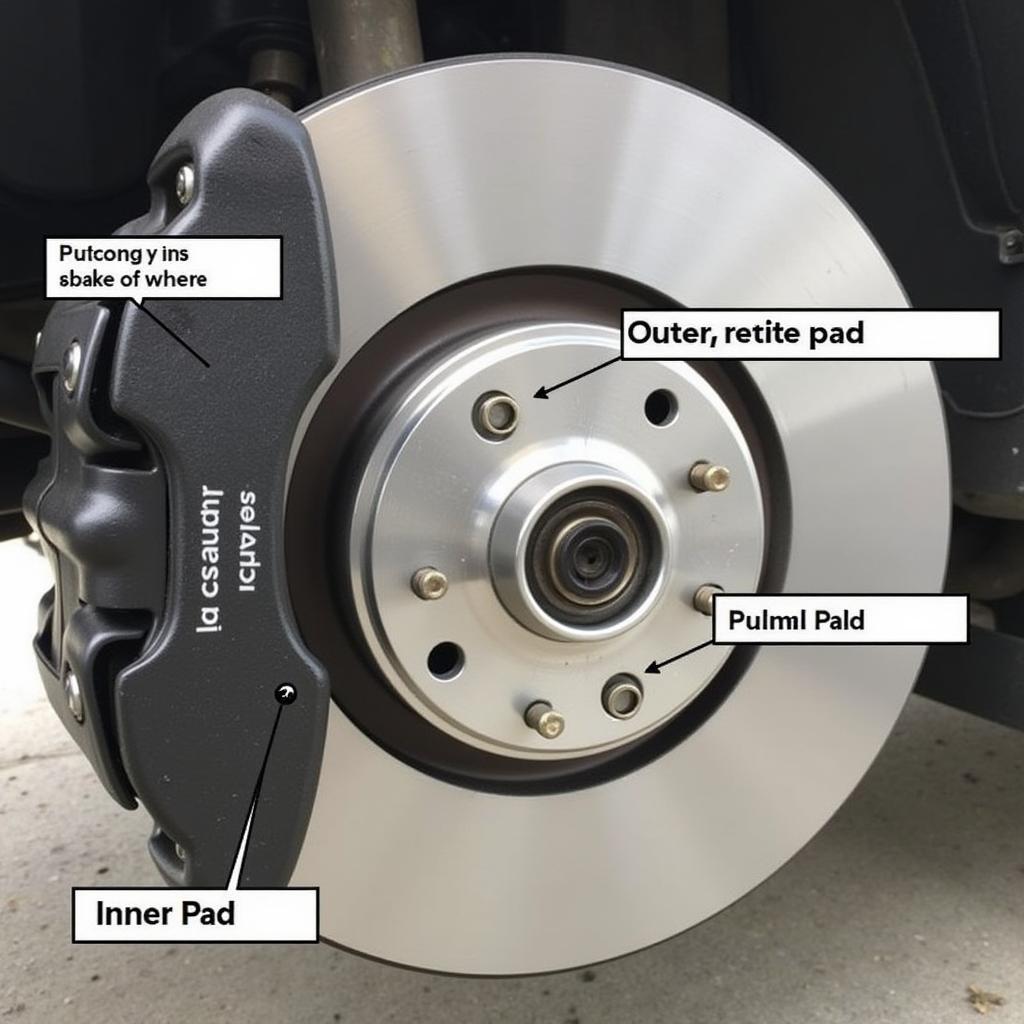A dead car battery is frustrating, especially when it keeps happening. Whether your car battery keeps going dead overnight, after sitting for a few days, or even while driving, this article offers comprehensive troubleshooting steps and expert solutions to get you back on the road. We’ll explore common causes, diagnostic techniques, and preventative measures to help you avoid this problem in the future. my car battery keeps going dead
Why Does My Car Battery Keep Dying?
Several factors can contribute to a recurring dead battery. Understanding these culprits is the first step towards a permanent fix. These issues can range from simple things like leaving your lights on to more complex problems with your car’s electrical system.
- Parasitic Drain: This is a common culprit, where a component in your car continues to draw power even after the ignition is off. Common culprits include interior lights, glove box lights, faulty door switches, and aftermarket electronics.
- Bad Alternator: The alternator recharges the battery while the engine is running. A faulty alternator won’t charge the battery properly, leading to a dead battery.
- Old Battery: Batteries have a limited lifespan, typically 3-5 years. As a battery ages, its ability to hold a charge diminishes, eventually leading to frequent failures.
- Extreme Temperatures: Both extreme heat and cold can affect a battery’s performance. Cold weather can slow down the chemical reactions within the battery, while excessive heat can cause the battery fluid to evaporate.
- Short Trips: Short trips don’t give the alternator enough time to fully recharge the battery after starting the car, gradually depleting it over time.
- Corroded Terminals: Corrosion on the battery terminals can disrupt the flow of electricity, preventing the battery from charging properly and even discharging it.
Diagnosing a Car Battery That Keeps Dying
Pinpointing the exact cause of your dead battery requires some investigative work. Here’s a breakdown of diagnostic steps you can take:
- Visual Inspection: Start by visually inspecting the battery terminals for corrosion. Clean them with a wire brush and baking soda solution if necessary.
- Battery Test: Use a multimeter or a battery tester to check the battery’s voltage. A fully charged battery should read around 12.6 volts.
- Alternator Test: With the engine running, the voltage should read between 13.5 and 14.5 volts. A lower reading indicates a problem with the alternator.
- Parasitic Drain Test: With the ignition off and all accessories turned off, use a multimeter to measure the current draw. A draw of more than 50 milliamps could indicate a parasitic drain. signs of battery problem in car
Solutions and Prevention
Once you’ve identified the problem, you can take the appropriate steps to fix it.
- Replacing the Battery: If the battery is old or failing, replacement is the most straightforward solution.
- Repairing or Replacing the Alternator: A faulty alternator needs to be repaired or replaced to ensure the battery is properly charged.
- Addressing Parasitic Drain: Identifying and fixing the source of the parasitic drain is crucial. This may involve replacing faulty components, such as door switches or interior lights.
- Regular Maintenance: Regular battery maintenance, such as cleaning the terminals and checking the electrolyte levels, can prolong battery life.
“Regular battery testing is key to avoiding unexpected breakdowns,” advises John Smith, Senior Automotive Electrical Engineer at AutoTech Solutions. “A simple voltage check can save you a lot of hassle in the long run.” car battery dead for no reason
How Long Should a Car Battery Last?
Typically, car batteries last between three and five years. However, several factors can influence this lifespan, including driving habits, climate, and the quality of the battery. battery goes dead after sitting
Conclusion
A car battery that keeps going dead can be a persistent problem, but by understanding the causes and implementing the proper diagnostic techniques, you can effectively address the issue. Regular maintenance and preventative measures can significantly extend the life of your battery and help avoid future headaches. signs of a faulty car battery Remember, a little proactive care can go a long way in ensuring reliable starts and a smooth driving experience.
FAQ
- How can I tell if my alternator is bad? A dimming of headlights, flickering interior lights, and a whining noise from the engine compartment can be signs of a failing alternator.
- Can a car battery drain overnight? Yes, a parasitic drain or a faulty battery can cause the battery to drain overnight.
- How often should I check my car battery? It’s a good practice to check your car battery at least twice a year, especially during extreme weather conditions.
- Can I jump-start my car every time the battery dies? While jump-starting can get you going temporarily, it’s crucial to find and fix the underlying cause of the dead battery.
- How much does a new car battery cost? The cost of a new car battery varies depending on the type and size, but typically ranges from $50 to $200.
- Can I replace my car battery myself? Yes, replacing a car battery is a relatively simple DIY task. However, it’s important to follow proper safety precautions.
- What should I do if my car battery keeps dying even after replacing it? If your new battery keeps dying, it’s likely a problem with the electrical system, such as a parasitic drain or a bad alternator. It’s best to have a qualified mechanic diagnose the problem.

